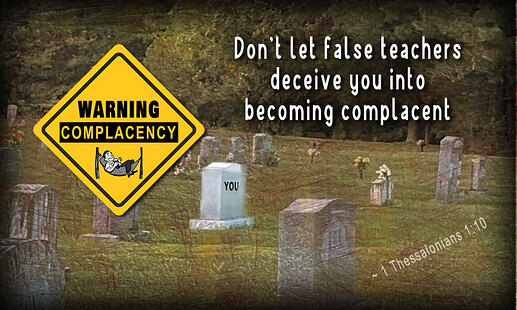The real problem is whether participation in divine energies is even a biblical idea to begin with. It’s not. The apostles never spoke in that language or in that framework. They spoke of repentance, forgiveness and new life in Christ, not mystical participation in uncreated energies.
The language which our Orthodox friend uses might sound strange to Western ears, but if I might unpack and try to translate this into a more Western-sounding theological framework:
Scripture speaks, quite often, of our invitation and call as believers to cooperate with God. A few examples in Scripture; when St. Paul speaks of the apostolic work of proclaiming the Gospel in 1 Corinthians he writes:
”For we are God’s fellow workers. You are God’s field, God’s building.” - 1 Corinthians 3:9
After having spoken of how we are saved by grace, through faith rather than works, the Apostle adds:
”For we are His workmanship, created in Christ Jesus for good works, which God prepared beforehand that we should walk in them.” - Ephesians 2:10
This language speaks of cooperation with God. We see other language such as,
“And do not grieve the Holy Spirit of God, by whom you were sealed for the day of redemption.” - Ephesians 4:30
and
“But I say, walk by the Spirit, and you will not gratify the desires of the flesh.” - Galatians 5:16
There is this common refrain in Scripture to obey God, to walk with God, to live in accordance with the Holy Spirit (and that the Holy Spirit enables and empowers us to live faithful and godly lives pursuing holiness). This is a relational cooperation; our union with Christ, by the grace of God means we have the Holy Spirit living in us, and in this new reality–a new man and new creation–we are invited and called to live lives of godliness and holiness, to walk and live in accordance with God’s will.
The word “energies” might sound strange, but this is simply a literal translation of the Greek word energeia, which is almost always translated as “works”. God in His acts, God in what God does; God’s gracious condescension and giving of HImself, and the call for us to live and abide in Him by the Spirit.
That is a more familiar way of understanding this language for those of us who grew up with distinctly Western theological categories. As Protestants we have been shaped by centuries of distinctively Western theological language; so the Eastern theological lexicon can sound strange to Western ears. But both East and West are relying on the same substance of faith which we encounter in Scripture; and while there are differences and disagreements (and we shouldn’t ignore or shrug those off) it’s helpful to understand that oftentimes East and West are getting at the same thing, but the semantics can be very different.
In the historically Protestant, going back to the Reformation itself, the language of Justification has always included the idea of what is called the Mystical Union (Latin: Unio Mystica). The word “mystical” might get a side-eye from many Protestants today, but what is meant here is that Scripture reveals (the Greek word for a revealed truth is mysterion aka a “mystery”) that we have a true union with Christ–we are in Christ and Christ is in us; this isn’t merely flowery semantics, Scripture really does mean to say that there is a real union between the believer and Jesus, in our Justification, and which is lived-out and expressed in our Sanctification. As we are called, in Christ, to lives of godliness, and walking in accord with the Spirit who lives in us by the grace of God, through faith. So that the Christian life is a life wherein we have not only been renewed (regeneration) but are being renewed (sanctification). This is a mystical union with Christ, this isn’t esoteric, occult gibberish; it’s substantive biblical historical Christian faith. By grace we have been invited to share in God’s life in Christ, by the Holy Spirit; in this we have been made new, are being renewed, and shall at the resurrection attain the fullness thereof. This is good, solid, basic Christian teaching, that we should hold fast to–no matter our denominational background.
